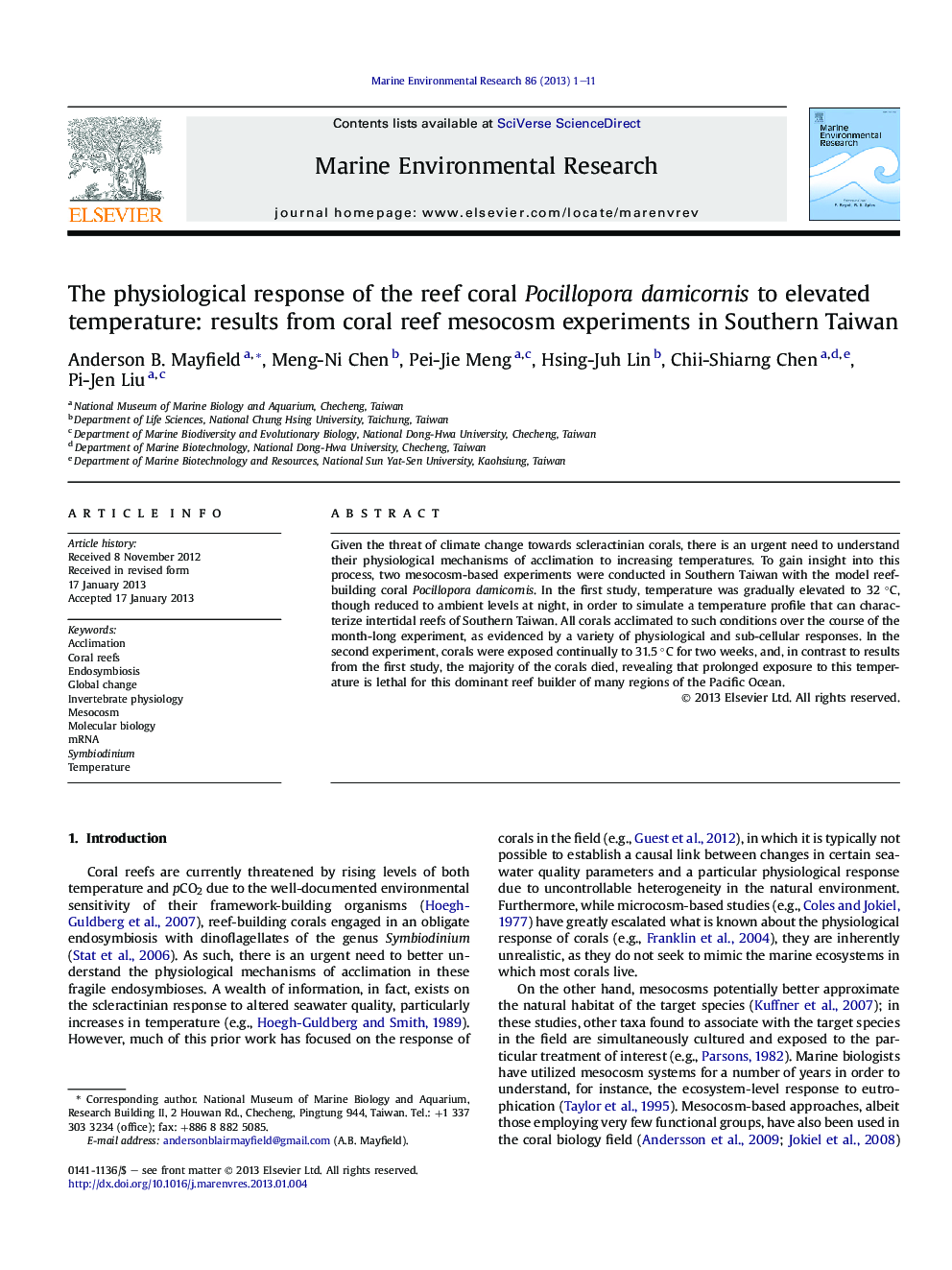| Article ID | Journal | Published Year | Pages | File Type |
|---|---|---|---|---|
| 4550895 | Marine Environmental Research | 2013 | 11 Pages |
Given the threat of climate change towards scleractinian corals, there is an urgent need to understand their physiological mechanisms of acclimation to increasing temperatures. To gain insight into this process, two mesocosm-based experiments were conducted in Southern Taiwan with the model reef-building coral Pocillopora damicornis. In the first study, temperature was gradually elevated to 32 °C, though reduced to ambient levels at night, in order to simulate a temperature profile that can characterize intertidal reefs of Southern Taiwan. All corals acclimated to such conditions over the course of the month-long experiment, as evidenced by a variety of physiological and sub-cellular responses. In the second experiment, corals were exposed continually to 31.5 °C for two weeks, and, in contrast to results from the first study, the majority of the corals died, revealing that prolonged exposure to this temperature is lethal for this dominant reef builder of many regions of the Pacific Ocean.
► First project to use mesocosms to study the model reef coral Pocillopora damicornis. ► P. damicornis can acclimate to pulses of elevated temperature up to 32 °C. ► Among few studies to document coral response across multiple biological scales. ► Duration of elevated temperature exposure drives physiological response of coral.
